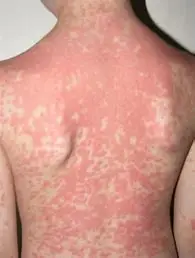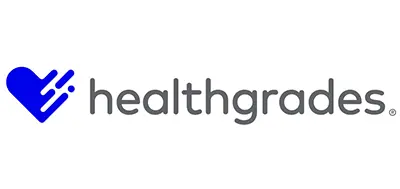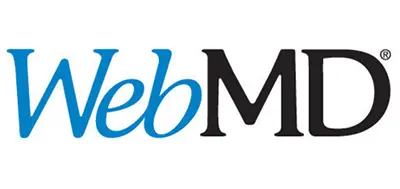Allergic Reaction
Get In Touch
Call Now
Monday to Friday
9:00 AM To 6:00 PM
Saturday and Sunday
Closed

When it comes to allergies, almost 30% of adults and almost 40% of children in the US are going through it right now. According to the AAFA, allergies affect 50 million Americans every year. Allergies are among the leading chronic diseases in the U.S. and the third leading chronic disease among children under 18 years of age.
It is the body’s way of reaction to a usually harmless substance or to make it easier for an “invader” or outsider. Once the body gets to know a foreign substance known as antigen has entered, the immune system gets triggered. Our immune system usually protects us from this foreign substance, although at times it can be an overreaction to, it creates a hypersensitive reaction or an allergic reaction.
Symptoms
Symptoms depend upon what body part is affected or the severity of the reaction. But below are some common symptoms that could occur:
- Skin irritation such as swelling, itching, redness, etc
- Tightness in the chest, difficulty breathing or cough
- Headaches or a hoarse throat
- Urticaria Rash
- Stuffy nose, runny nose, sneezing constantly
- Red shot, swollen or watery eyes
- Nausea, vomiting, diarrhea
- Light-headedness, fatigue, etc.
- Stuffy nose, runny nose, sneezing constantly
- Red shot, swollen or watery eyes
- Nausea, vomiting, diarrhea
- Light-headedness, fatigue, etc.
How Allergen or Foreign Body may enter the body

- Oral in-take of certain food or its component, plants, Medication or Chemical substances.
- Skin Contact with certain medication, plants, Chemical, animals’ excretions Swelling and food Products.
- Airborne contact with allergen(s) though Nose, eye, and or lung inhalation from plants, animal parts or excretions and food particles.
- Intravenous or intravascular injections of Medication, Drugs and Chemical sub centers.
We do not know how a foreign body or invader play a role as an Allergen or invader, triggers a hypersensitivity reaction in certain human or animal at certain time of life and the same invader or allergen would remain completely innocent in other human or animal during their entire life without any allergic reaction
The first step the physician undertakes is to determine the severity of the allergic reaction. In case of severe reaction such as Anaphylactic Reaction needs immediate medical attention.
- Checking the pulse and blood pressure along with close monitoring.
- Check if patient need any help in breathing
- Establish an IV line to infuse fluid
- Anti-allergy medication such as antihistamine (Benadryl), Adrenalin & Steroid introduced IV or IM
- If Allergic reaction is mild: it can be treated with oral medication such as antihistamines (Benadryl, Allegra, Zyrtec) & Corticosteroids.
Antihistamines:
- Are the best bet when it comes to reducing the symptoms of allergies that lead to skin reactions, sneezing or watery eyes as they decrease the production of histamine in the body.
- Antihistamines come in many forms such as oral pills, tablets, nasal sprays, liquids or eye drops. They are likely to cause a certain level of drowsiness.
Corticosteroids:
- Corticosteroids are topical medication, used in ointment or cream format, to reduce inflammation and itching caused by the allergic reaction.
- Steroid may also be used in inhaler format for Lung if causesBronchospasm reaction like asthma presenting as shortness of breath & wheezing.
- Steroid may be used intravenously when dealing with severe allergic reactions.
- Animal dander
- Bee stings
- Certain medications such as penicillin
- Dust mites
- Foods — particularly peanuts, tree nuts, fish, shellfish, eggs, milk, wheat, and soy
- Insect bites
- Latex or other materials you touch
- Mold, Plants and pollens
- Atopic Allergy Allergic Rhinitis, Allergic Conjunctivitis, Atopic Dermatitis, Asthma
- Allergic Urticaria Idiopathic Urticaria
- Anaphylactic Reaction to: Food & Food Products, Nuts & Seeds, Fruits & Vegetables, Fish & Shellfish, Milk & Dairy, Eggs and others.
- Is localized vasculitis associated with deposition of immune complexes and activation of complement?
- Immune complexes form in the setting of high local concentration of vaccine antigens and high circulating antibody concentration.
- Arthus reactions are characterized by severe pain, swelling, induration, edema, hemorrhage & necrosis
Contact us today at Encino Medical Care, if you or your loved one are having one, we provide immediate attention along with personalized care. TEL: (818)646-0250 or (818)385-1300
What Patients Say
Our Testimonials
Why patients trust Dr. Farah with their health

Came in with a headache and started to feel sick. Had a big trip for New Years, therefore I had to solve my problems quickly. Dr. Farah helped me right away and treated all my problems, he saved my weekend. Will come here again soon.
Melanie Warner

I was in a lot of pain and I walked in and the receptionist was so lovely. I was into see the doctor within five minutes and he listened to me and was wonderful. I’ve been to a few urgent cares and this one by far is the best !
Tiffany Lee-Frank

I absolutely love Dr Farah and his whole staff on the medical and the spa side. I’m not just saying this, Dr Farah has been my doctor over 10 years and I’ve been using his Rejuvenate spa for about 4 years now. I would give them 10 stars if I could!!!
Lori Brooks

Ashley and Anna are friendly and made me feel welcome and at ease. Dr. Farah was very understanding and answered all my stupid questions. They were all very professional and patient with me.
juli ross
Providing Urgent Care for non-life-threatening health complications

Urgent care services
Monday to Friday
9:00 AM To 6:00 PM
Saturday and Sunday
Closed
17130 Ventura Boulevard,
Encino California 91316






